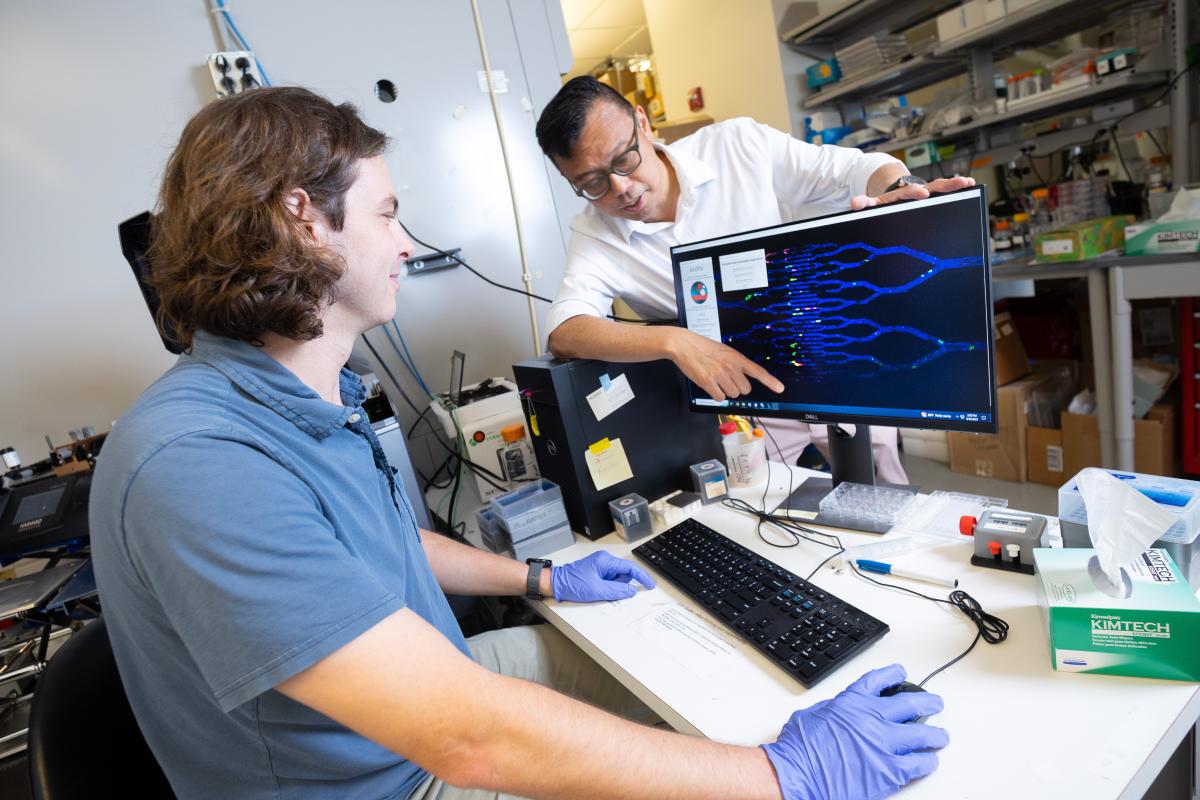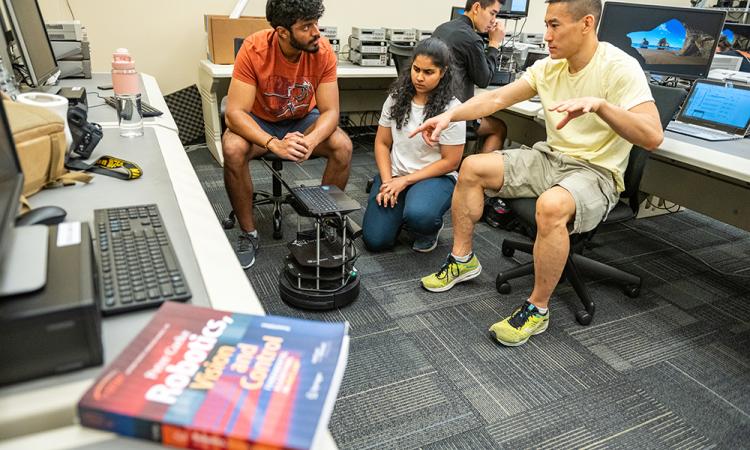The joint program in the College of Engineering and Ivan Allen College of Liberal Arts will provide students with skills to use AI and ML to solve people-focused problems.
(text and background only visible when logged in)

(text and background only visible when logged in)
The College of Engineering has partnered with the Ivan Allen College of Liberal Arts (IAC) to create Georgia Tech’s first minor degree program in the applications of artificial intelligence (AI) and machine learning (ML).
The degree is available to all Georgia Tech engineering and IAC students. It features two tracks: one in engineering, the other in liberal arts.
The minor will equip undergraduate students with skills and knowledge to use AI and ML to solve problems in engineering, humanities, and social sciences. It’s designed to provide students with the insight to describe and discuss current ethics and policy frameworks related to AI and machine learning.
The program will be offered beginning this summer. Students are encouraged to reach out to their academic advisors in the participating units to enroll in the minor. The program complements the College of Engineering’s recent re-imagining and creation of 14 core AI courses for undergrads.
The minor initially was suggested by leaders and external advisory board members in Georgia Tech’s biomedical engineering department to provide more AI and ML curriculum for their students.

Minor in Applications of AI and Machine Learning
Learn how to use AI and ML to solve problems in engineering, humanities, and social sciences along with the insight to describe and discuss the ethical and policy implications of AI.
“AI is so rampant in so many disciplines, and biomedical engineering students need to have that background before and after graduation,” said Jaydev Desai, associate chair for undergraduate studies in the Wallace H. Coulter Department of Biomedical Engineering at Georgia Tech and Emory University. “Once we talked to the rest of the College about the minor, it quickly became clear that other schools had the same goals. This minor will truly be a transformative experience for our undergraduate students and make them competitive after graduation, be it in industry or pursuit of further education.”
Desai quickly found a partner in IAC when he spoke with Shatakshee Dhongde, the College’s associate dean for academic affairs. Together they built a program that teaches both the technical and policy aspects of AI.
“This program is designed to address how AI and machine learning models are applied to solve some of the world's most pressing and complex problems," said Dhongde, who is also associate professor in the School of Economics. “Using AI/ML models with an understanding of the ethical issues around the technology is the real strength of this minor.”
“This minor will truly be a transformative experience for our undergraduate students and make them competitive after graduation, be it in industry or pursuit of further education.”
JAYDEV DESAI
Associate Chair for Undergraduate Studies
Wallace H. Coulter Department of Biomedical Engineering
Students on both tracks are required to take three core courses — including a philosophy course in AI ethics and policy — and two electives.
Engineering courses are offered by six of the College’s eight schools: biomedical, chemical, electrical and computer, industrial systems, materials, and mechanical engineering. Subjects range from robotics to biomedical AI to signal processing and more.
IAC courses cover topics that include machine learning for economics, language and computers, race and gender and digital media, and public policy.
Organizers developed several new courses to create the minor. Desai has already heard from other Georgia Tech colleges and schools about adding more classes, and he’s excited to see many more undergraduate students at Georgia Tech benefit as the initiative expands.
“We wanted to create something that will improve the educational experience of our undergraduate students and make them more competitive in the marketplace,” Desai said. “The current collection of courses also will make them stronger if they have a goal of starting their own businesses or creating devices. The minor really has a nice structure that welcomes other disciplines around the campus, and we look forward to them joining us in the future.”
(text and background only visible when logged in)

Jaydev Desai

Shatakshee Dhongde
(text and background only visible when logged in)
(text and background only visible when logged in)
Related Content

College Adds, Reimagines AI Courses for Undergraduates
Focusing artificial intelligence content in 14 core courses will equip students with knowledge and hands-on experience companies need in their workforces.

Biomedical AI Symposium
Wallace H. Coulter Department of Biomedical Engineering at Georgia Tech and Emory University is hosting its first-ever Biomedical AI Symposium, bringing together leading experts in healthcare and AI to discover how the techology will be transformational in the biomedical engineering field in the future.

Ivan Allen College to Offer AI Applications Minor in Conjunction with Engineering
The minor’s Ivan Allen College track will give students the skills necessary to ethically and effectively use such tools in digital humanities and computational social sciences contexts.
(text and background only visible when logged in)